This article may contain affiliate links. Please see our affiliate disclaimer in the footer menu for more information. Thank you for your support!
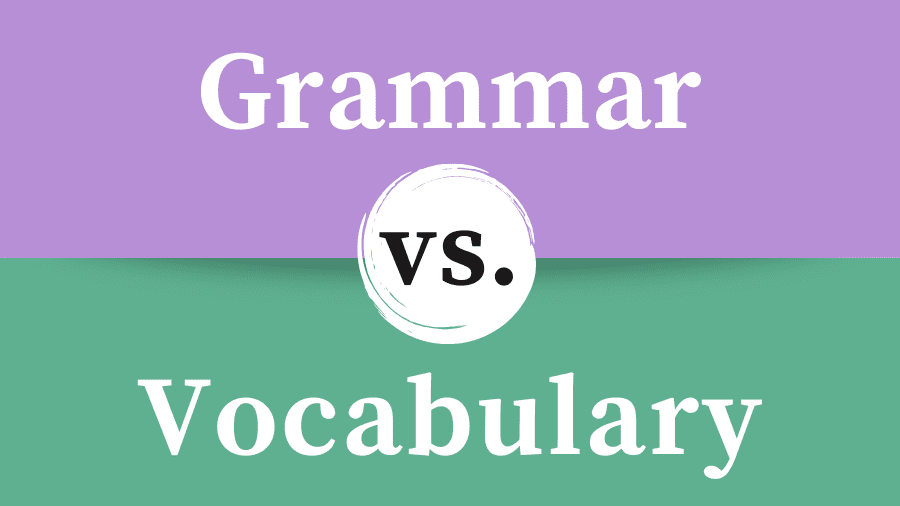
Grammar and vocabulary are related, yet they have distinct differences. As a trained proofreader and fluent Spanish speaker, I can help you get a firmer grasp of both.
Grammar refers to how we arrange words within sentences to convey meaning. It also considers how words can change forms (e.g., from singular to plural). Vocabulary refers to the entire mass of words used in a language or the collection of words known by an individual or group.
Let’s explore the differences and similarities between these two terms and see how they’re used in some example sentences.
Grammar vs. Vocabulary: What’s the Difference?
Let’s glance at how grammar and vocabulary differ before we delve deeper.
Grammar vs. Vocabulary
| Grammar | Vocabulary | |
|---|---|---|
| Definition | order of words (also involves parts of speech and inflection) | meaning of words |
| Ease of Learning | requires more critical thinking | fairly straightforward |
| Changes over Time? | very little | yes |
| Best Applied How? | style guide or grammar book | dictionary; usage guide within style guide or grammar book |
We need grammar and vocabulary to speak, listen, read, and write in whatever language or languages we know.
Grammar and vocab both deal with words, but here are four important ways in which they differ:
- Grammar considers words in terms of their part of speech, how they change forms, and the order in which they should be placed into sentences. Vocabulary considers words in terms of their meaning.
- Grammar is more nuanced and arguably more challenging to learn. Vocabulary is more straightforward, requiring that one memorize the meanings of words.
- Grammar is based on standard rules that remain relatively unchanged over time. However, a language’s vocabulary evolves as words fall out of usage and new terms are continuously created and learned.
- Grammar can best be applied by following a style guide or grammar book. Vocabulary can best be put to use by following a dictionary.
Also, the word usage guidelines in style guides and most grammar books can help us use the right vocabulary word for the right context.
We often get confused about the meaning of words if they’re homophones.
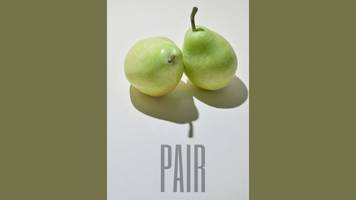
Homophones sound alike but differ in meaning (and usually spelling too). For example, pair and pear are homophones.
Usage guidelines, which focus on homophones and other pairs of confusing words, help us differentiate between words’ meanings.
I wrote an article called “Grammar vs. Usage: What’s the Difference?” if you’d like to learn more. 😊
Now let’s get a deeper understanding of what’s meant by grammar and vocabulary, including how they’re related.
What Is Grammar?
Here’s a solid definition of the word grammar:
“the study of the classes of words, their inflections, and their functions and relations in the sentence”
Source: Merriam-Webster.com Dictionary
Here, the term classes of words refers to the eight parts of speech: nouns, pronouns, verbs, adjectives, adverbs, prepositions, conjunctions, and interjections.
I go into more depth about these parts of speech in my post about grammar and punctuation.
The term inflections refers to the changes a word undergoes when we alter its form, usually by adding letters. For example, we can change the word tree to trees to make it plural. And we can change the word hike to hiked to show the past tense.
In sum, grammar deals with the parts of speech and the order in which we combine them to form sentences. Syntax is the word we use to describe the aspect of grammar that deals with word order.
Example Sentences Using the Word Grammar
Here are three sentences using the word grammar:
1) She used improper grammar when she conjugated the verb incorrectly.
2) Spanish grammar is more difficult to learn than English grammar.
3) After finding several sentence fragments and dangling modifiers in Betsy’s writing, the teacher advised her to improve her grammar skills.
What Is Vocabulary?
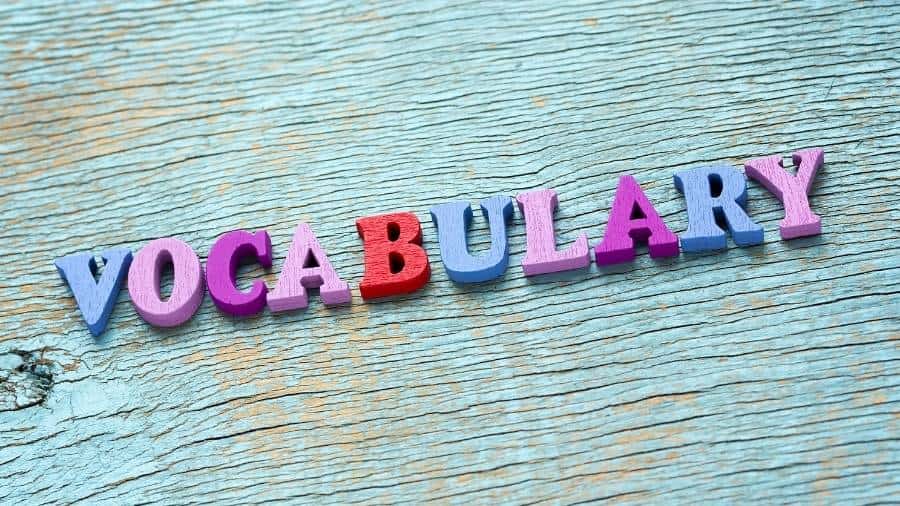
The Merriam-Webster.com Dictionary defines the word vocabulary as follows:
“a sum or stock of words employed by a language, group, individual, or work or in a field of knowledge”
Source: Merriam-Webster.com Dictionary
Your vocabulary consists of all the words you know in a particular language.
According to grammar.com, the average adult has an active vocabulary of approximately 20,000 words.
Active vocabulary refers to the number of words you can comfortably use to communicate.
Passive vocabulary includes your active vocabulary and the words you can understand but don’t grasp well enough to use.
And how many words are in the English language? Although this number constantly changes as new words are added to the dictionary, an article from Reader’s Digest suggests that it’s about a million (source).
Example Sentences Using the Word Vocabulary
Here are three sentences using the word vocabulary:
1) My Spanish vocabulary isn’t nearly as expansive as my English vocabulary.
2) The boy developed a sophisticated vocabulary because he spent most of his free time reading.
3) The vocabulary of lawyers encompasses a plethora of legal terms.
How Are Grammar and Vocabulary Related?

Grammar and vocabulary both have to do with words. Grammar relates to how words change form and come together to make meaningful sentences. Vocabulary refers to the vast collection of words used by an individual or group.
Both grammar and vocabulary are necessary to communicate clearly while speaking or writing.
Vocabulary provides us with the words we need to convey information, and grammar gives us the structure that allows us to put words together correctly to communicate effectively.
When you learned the language you now speak, you simultaneously acquired vocabulary and grammar skills.
If you’re an aspiring proofreader, you’ll need a firm grasp of grammar rules and a wide vocabulary to succeed. Also, if you choose to specialize in a proofreading niche, you’ll need to learn the lexicon of that discipline.
Is It Better to Learn Vocabulary or Grammar?
It’s better to learn a bit of vocabulary when first learning a language. While both vocabulary and grammar are essential for clear communication, you can’t convey meaning without vocabulary. Words carry the meaning, and grammar dictates the order in which we speak or write the words.
When I started learning Spanish, people could understand me even though I always spoke in the present tense.
I found it was more important to develop a basic vocabulary before delving into grammar.
However, when you learn to speak a new language, you’ll learn vocabulary within the context of appropriate grammatical structures. Therefore, you’ll pick up vocab and grammar at the same time! 😊
How to Improve Your Grammar and Vocabulary
A strong vocabulary and solid grammar skills will serve you well in many areas of life. So how can you get better at both? Let’s learn about ways that let you boost your grammar game and expand your vocabulary at the same time!
Read about What You Love
Try to dedicate some time each day to reading about whatever interests you. Just make sure that whatever you’re reading is well-written.
Books published by a recognizable publishing company (e.g., Penguin Random House, Harper Collins, Simon and Schuster) are reliable sources.
You can also turn to magazines, newspapers, and reputable online sources.
The reason reading is so effective is that you’ll naturally pick up on grammar rules and build your vocabulary with minimal effort.
Dig into the Dictionary
I like referring to the dictionary to help me augment my vocabulary and grammar skills. Using the dictionary to discover the meaning of words is a no-brainer.
However, you can also use the dictionary to discover grammatically sound sentences for the words you look up.
For example, if you didn’t know that the word augment means to increase or enlarge, you probably figured that out by reading the last paragraph.
But how do you use this word in a sentence?
We can use the Merriam-Webster Online Dictionary to see a few excellent examples! The last two sentences are good examples for beginners.
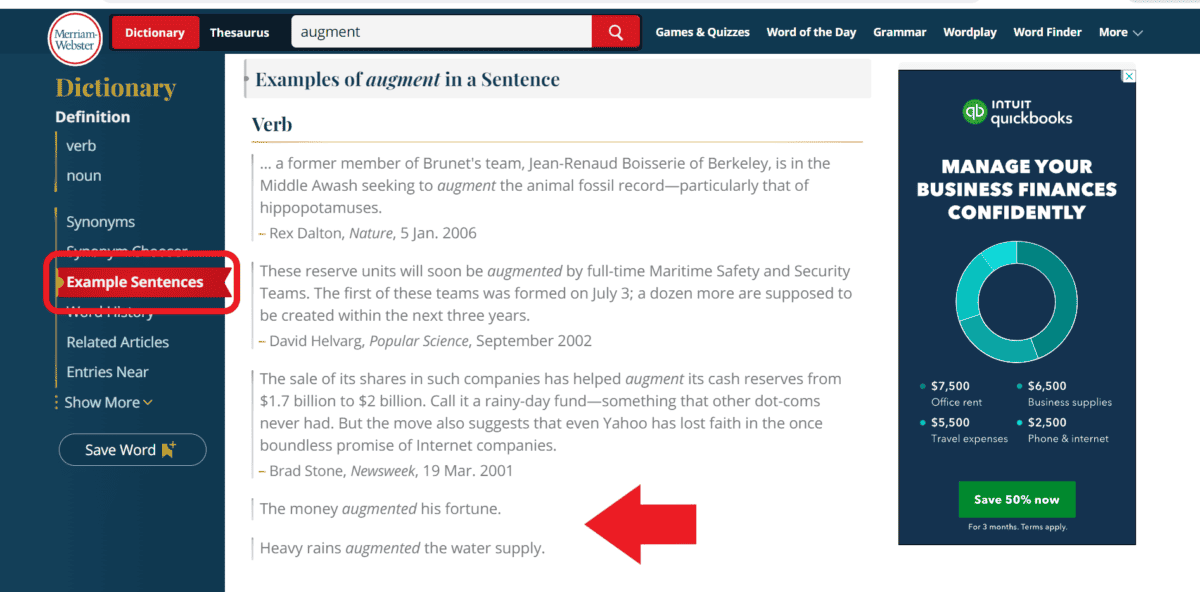
And if you need a simple definition for any word, you can scroll down to the definition for kids.
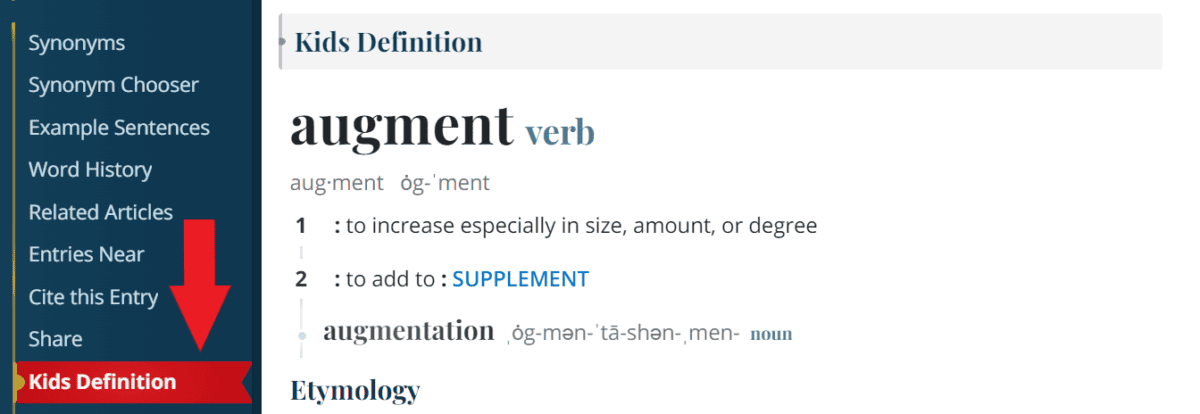
Use Online Sources that Match Your Level
If you want more focused practice, the internet is full of helpful websites for practicing grammar and vocabulary.
I authored an article about the best websites to practice English grammar. The article discusses numerous websites for practicing grammar (and sometimes vocabulary) depending on your English level.
Grammar Monster is my favorite site for all levels because it has something for everyone.
You can find lots of fun games and tests not only for grammar but also for vocabulary.

I hope this article has helped you understand the differences between grammar and vocabulary and that the above methods will assist you with your learning.
If you’d like to read a related post, feel free to check out my article “Grammar vs. Spelling: How Are They Different?”
Best wishes to you!
“Without leaps of imagination or dreaming, we lose the excitement of possibilities. Dreaming, after all, is a form of planning.”
– Gloria Steinem
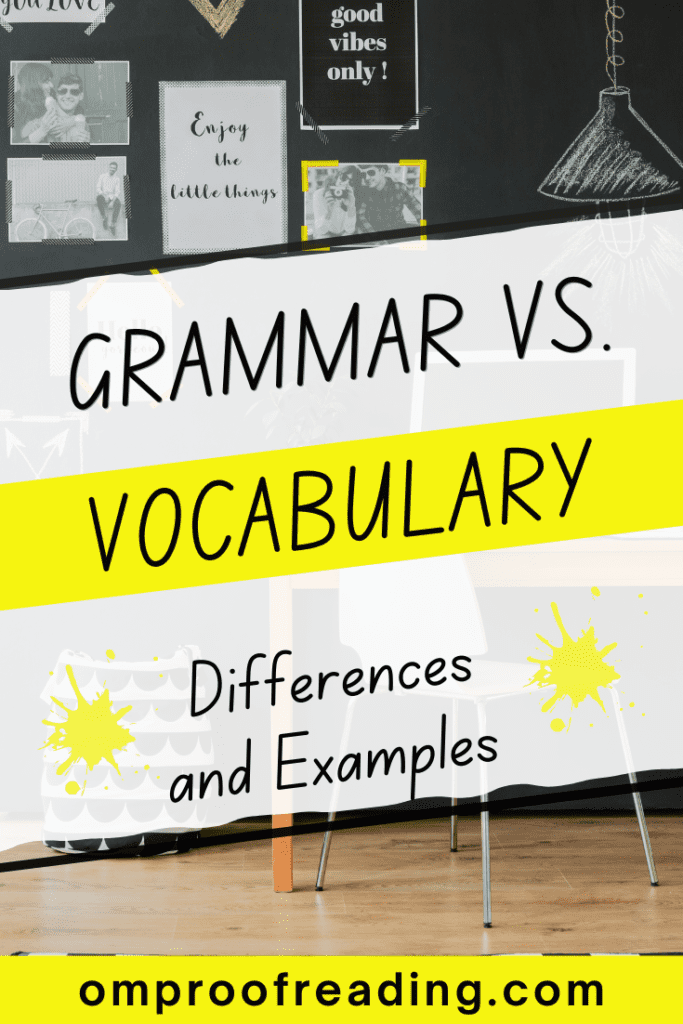
Recent Posts
Punctuation is important because it enables us to communicate our message clearly and effectively. Without punctuation, we wouldn’t understand how units of a sentence relate to one another or how...
Although you're probably somewhat familiar with adverbs, you may be unaware of sentence adverbs. As a trained proofreader who has studied the parts of speech, I can help you understand this unique...
